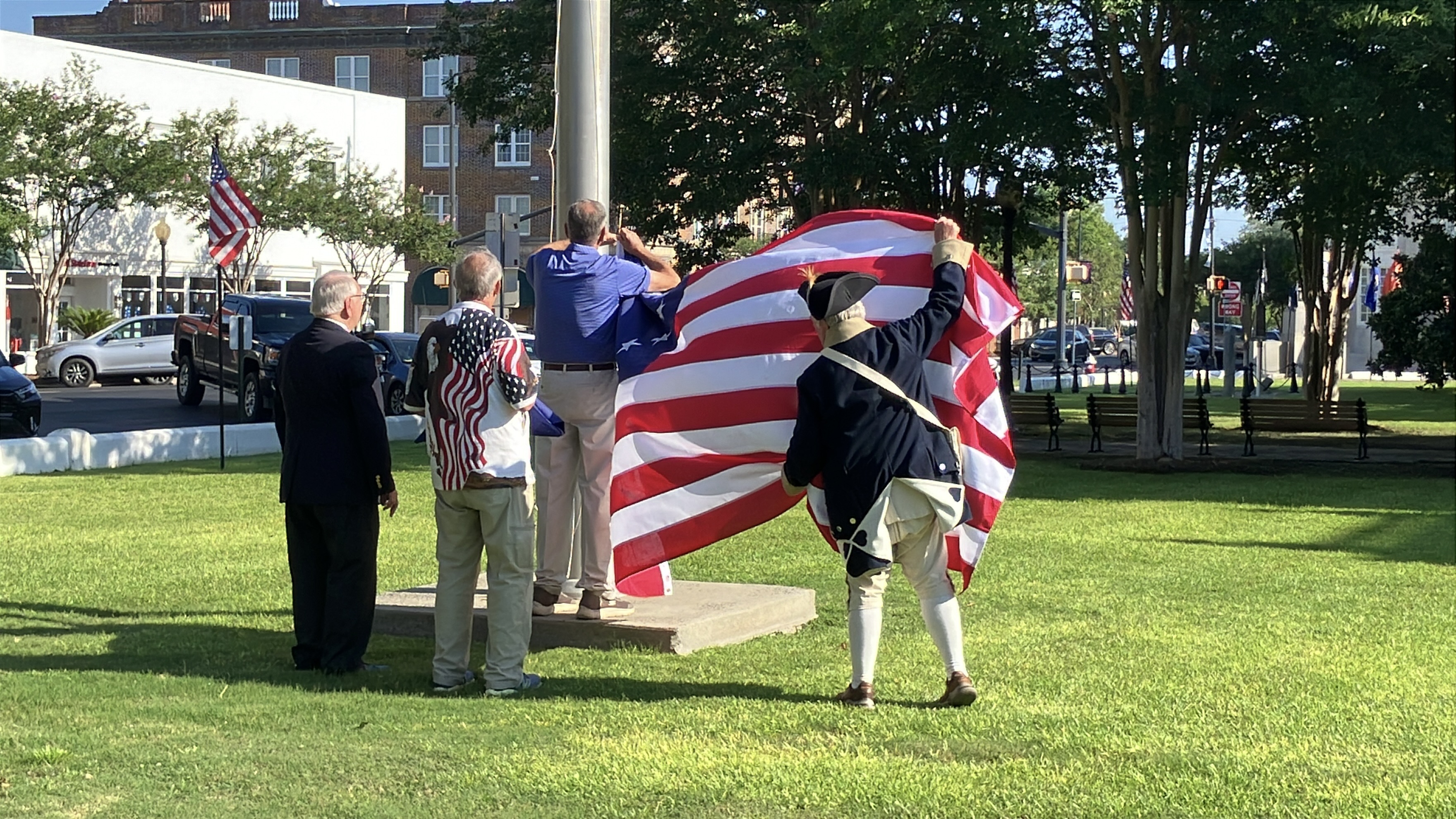Assistant U.S. OCTAE secretary sees what GMC has to offer
Published 2:00 pm Thursday, April 26, 2018

- OCTAE secretary
MILLEDGEVILLE, Ga. — Georgia Military College believes it is doing many things well and has solutions that can aid other similar educational institutions across the country.
School administration extended an invitation to the United States Department of Education’s Office of Career, Technical and Adult Education (OCTAE) to see how or if some areas GMC is excelling in could be duplicated at other two-year colleges. Accepting the invite was OCTAE acting Assistant Secretary Dr. Michael Wooten who visited the Milledgeville campus for about half the day Monday and met with top institution leadership including GMC President Lt. Gen. William B. Caldwell, IV.
“My mission was to visit the college and see what the college had to offer in the way of new and innovative approaches because one of the things I get to do as the acting assistant secretary for Career, Technical, and Adult Education is go out and visit educational institutions and industry for great models that might offer solutions in other places in the country,” Wooten told The Union-Recorder in a sit-down interview Monday afternoon.
Wooten’s job entails managing more than $2 billion in initiatives supporting career and technical education, adult education, correctional and re-entry education, and community colleges. According to the OCTAE website, initiatives in those education fields serve more than 25 million students each year.
He pointed out there are a couple of two-year military institutions facing some challenges, but GMC is not one of them.
“This is a space I care about,” Wooten said speaking about military colleges, “and if Georgia Military College has some solutions that can help this particular space I think it’s a good thing. … Understanding this space really motivated me to really look at some of the things that might be portable and helpful in just military education in general. That is outside of my lane, but then again it isn’t. When we start talking about military education you can kind of loop it into career and technical education — that piece.”
One area in particular where GMC is excelling is in the realm of dual enrollment, which offers high school students the opportunity to take college courses for college credit. Dual enrollment is not paid for in the same manner in every state. Some state governments, like Georgia, cover the costs for high school students taking the college courses. In others, it is up to the school system, families, or a combination.
“One of the fundamental challenges to dual enrollment is the fact that the question comes up of who’s going to pay for it,” Wooten said of dual enrollment. “In Georgia, there seems to be a commitment for the state of Georgia to pay for it, so that takes away that potential food fight for whether it should be the K-12 institution or the junior college. … That’s a question that I think is going to be resolved differently across the states. Some may not be able to come to the same solution, but it’s interesting to me to note that the state pays for dual enrollment [in Georgia].”
Another way GMC is able to reach the masses is its numerous campuses spread across the state. The institution has 14 traditional campuses in Georgia and brands its online learning platform as an online campus with its own dedicated staff. The online campus serves traditional college students and dual enrollment students alike making college courses accessible to high schoolers who may not have a physical campus nearby.
“It seems Georgia Military College is able to extend dual enrollment into some rural pockets, which is a significant challenge for a lot of college institutions,” Wooten said.
The assistant secretary also commended GMC for recently constructing a four-year, baccalaureate program of applied sciences along with many articulation agreements that make transferring technical college credits very simple.
Wooten said he did not have any suggestions as to how GMC could improve the services it offers its students, just an idea to “advance excellence.”
“For example, one of the things I talked about today was that their people are engaged in volunteerism and leadership is a big part of the curriculum,” he said.
He believes the school should look into participating in the Congressional Awards program that involves young people setting and meeting personal goals in voluntary public service, personal development, physical fitness, and expedition/exploration.
“I bet you I’ll come back in a year and Georgia Military College will be doing that,” Wooten said. “I think it’s a great program that recognizes the things these students are already doing.”
“We’re just so glad that you accepted our offer to come visit us and learn more about us,” said GMC Director of Staff Jeannie Zipperer who sat in on the interview. “We want to continue the relationship. We’d love for you to come back down in a year to see if we have any Congressional Award recipients.”
Wooten added that he was glad to be in the state of Georgia, where his family has significant ties.
“It was my pleasure to visit this great institution, and it was my pleasure to come home also,” he said. “My family on both my mother and father’s side go back to south Georgia for six generations. I consider myself a Virginian these days. That’s where I’ve spent the majority of my life, but I have not lost sight of the fact that my roots are here and my parents were born here. My wife’s parents were born in Georgia and my children were born in Georgia.”
Wooten was hired to his current position by U.S. Secretary of Education Betsy DeVos in October 2017.





